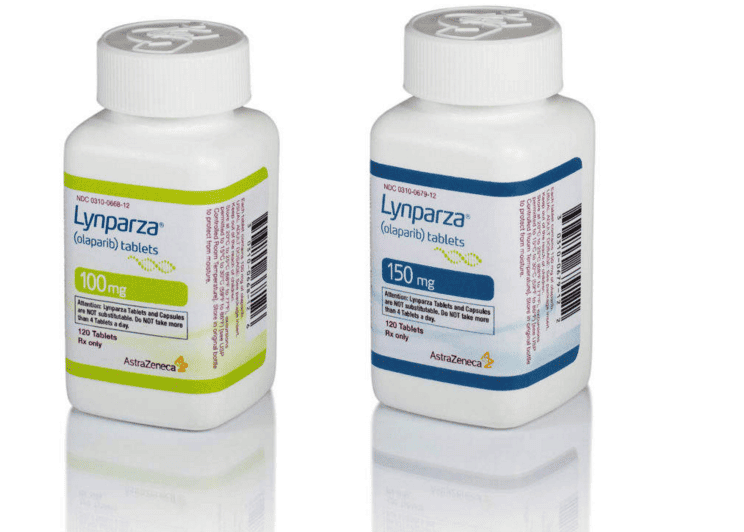
The EMA’s main advisory committee for medicines backed new indications for AstraZeneca and Merck & Co/MSD’s Lynparza and Sanofi’s Dupixent that could both unlock sizeable new markets for the drugs.
PARP inhibitor Lynparza (olaparib) – already making big headway in ovarian cancer – was given a positive opinion by the CHMP for BRCA-mutated, HER2-negative breast cancer, around a year after the drug got a green light for this indication from the US FDA. Lynparza should be used as a monotherapy after an initial attempt at treatment with chemotherapy or hormonal therapy, depending on the characteristics of the tumour, unless those treatments are not suitable, according to the CHMP.
Last year, sales of Lynparza more than doubled to $647m after picking up the breast cancer indication in the US and extended use in ovarian cancer, and AZ and MSD will be hoping for further upward momentum, particularly if they can extend the drug’s use even further into pancreatic cancer.
For Sanofi and its Dupixent (dupilumab) partner Regeneron, approval for the IL-4 and IL-13 inhibitor as an add-on maintenance treatment for severe asthma is also viewed as a key factor if it is to meet multibillion-dollar sales projections.
It was approved for asthma by the FDA last year, adding to its existing licence in atopic dermatitis, and analysts have suggested that the new indication could swell peak sales by $2.5bn a year – thanks to its potential role in limiting exposure to high-dose inhaled corticosteroids that can have serious side effects if used chronically.
There was a raft of other significant recommendations from the CHMP at its latest meeting, including one for Portola’s Ondexxya (andexanet alfa), which if fully approved by the EMA will be the first reversal agent for novel oral anticoagulants (NOACs) that target factor Xa. It was rejected by the CHMP a year ago.
Ondexxya is intended for use in patients taking Pfizer/Bristol-Myers Squibb’s Eliquis (apixaban), Bayer/Johnson & Johnson’s Xarelto (rivaroxaban) as an antidote to life-threatening or uncontrolled bleeding. So far, Boehringer Ingelheim’s rival NOAC Pradaxa (dabigatran) – which works by inhibiting thrombin – is the only NOAC on the market with a reversal agent available.
Two rare diseases are on track to get their new EU-approved therapies thanks to the latest CHMP deliberations.
The committee recommended a conditional marketing approval for Akcea’s Waylivra (volanesorsen) for the treatment of the familial chylomicronaemia syndrome (FCS), a genetic disease that prevents the body from breaking down fats and causes high levels of triglycerides in the blood. The EU backing is a boost for Akcea after the drug was rejected by the FDA last year.
Meanwhile, BioMarin got the nod for Palynziq (pegvaliase), a new enzyme replacement therapy for patients aged 16 and older with phenylketonuria, a rare but potentially serious inherited metabolic disease. It is the first alternative to its own Kuvan (sapropterin) product, which is currently the only medicine authorised at EU level for PKU.
There was also another positive opinion for Sanofi, this time for its Lexicon Pharma-partnered SGLT1/2 inhibitor Zynquista (sotagliflozin) as an oral add-on to insulin therapy to improve blood sugar control in type 1 diabetics. Zynquista is the second SGLT-acting drug to get approval in these hard-to-treat patients after AZ’s Forxiga (dapagliflozin) a month ago. EvaluatePharma has suggested Zynquista could have sales of almost $1.2bn by 2022.
Among the other outcomes of the meeting were positive opinions for:
– GlaxoSmithKline’s Dectova (zanamivir) under exceptional circumstances for the treatment of complicated and potentially life-threatening influenza;
– Pfizer’s Lorviqua (lorlatinib) for the treatment of ALK-positive advanced non-small cell lung cancer (NSCLC); and
– AbbVie and Boehringer Ingelheim’s IL-23 inhibitor Skyrizi (risankizumab) for the treatment of moderate to severe psoriasis.




